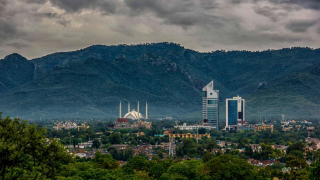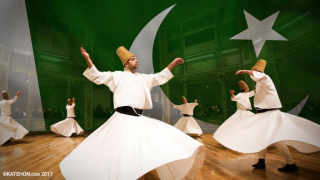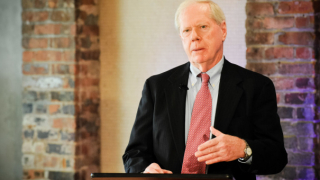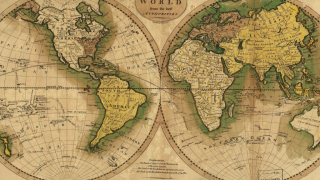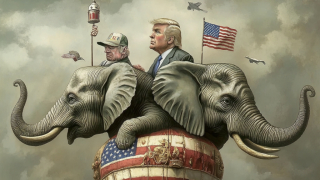Afghan peace process - a paradigm shift in US policies
Norwegian sociologist, mathematician, and the principal founder of the discipline of peace and conflict studies Johan Galtung’s model of peace builds on the dichotomy between what he calls ‘war journalism’ and a ‘peace journalism’ approach. The model includes four main points of contrast between the two approaches: war journalism is violence-orientated, propaganda-orientated, elite-orientated and victory-orientated. This is often linked to a dualistic method, a zero-sum game in which each participant's gain or loss of utility is exactly balanced by the losses or gains of the utility of the other participants. A potential consequence is that war journalism contributes to escalating conflicts by reproducing propaganda and promoting war whereas Peace journalism make choices – about what to report, and how to report it – that create opportunities for society at large to consider and to value non-violent responses to conflict. To speak of optimism, finally, Galtung’s model of peace is finding its roots in the Afghan conflict as all the major stake holders of Afghan conflict are on board to negotiate consolidated peace talks to resolve the issue by showing leniency in their attitudes. This is a massive move towards positive peace, which will determine the prospects of security in the region in the days to come.
There is no second opinion that the Taliban will be a legitimate party in any eventual peace deal. The United States weighs its exit options in Afghanistan (The US, which had more than 100,000 troops in Afghanistan at its peak during the first term of former President Barack Obama, withdrew most of them in 2014, but still keeps around 14,000 there). The only thing certain for now is the return of the Taliban to Kabul – either as part of a weakly enforced coalition supporting an elected government or as the sole administrators of the country. In October, the recently appointed U.S. Special Representative to Afghanistan, Zalmay Khalilzad, met with delegates of the “Islamic Emirate of Afghanistan” in Doha, signaling Washington’s willingness to talk with the Taliban. The recent U.S. overtures appear urgent, but Khalilzad is not the only one reaching out to them. The international community has been keeping contacts with the Taliban in the expectation that it would be a legitimate party in any eventual political settlement.
The Taliban have declared engagement with the United States for negotiating an end to "the war and illegitimate occupation" of Afghanistan remains on track, ruling out once again any direct peace talks with the government in Kabul. Reportedly, the Taliban are reluctant in holding talks in Saudi Arabia amid Riyadh and UAE’s pressure to include Kabul’s NUG in the process. They have demanded for change of venue from UAE to Qatar or Pakistan to avoid any pressure.
Taliban are very clear in their stance about an end to US presence on their land. They maintain that the Afghan administration does not want an end to the foreign occupation hence they cannot negotiate with the sitting regime.
However, in par with the desires of the Taliban, the venue for the dialogue has been decided and the next round of talks between Afghan Taliban and United States will be held in Islamabad Pakistan. US Special Representative for Afghanistan Reconciliation Zalmay Khalilzad, has also expressed wish to hold talks with Afghan Taliban in Islamabad to which Pakistan has graciously consented. According to sources, a delegation of over 10 leaders of Afghan Taliban will attend talks in Pakistan whereas Saudi Arabia, United Arab Emirates and Qatar will also participate in these peace talks.
Zalmay Khalilzad has been on stormy tours to Pakistan in recent days to discuss progress on Afghan peace process after being mandated by president Trump to expedite the matter-- representatives of US State Department, Pentagon and National Security Council accompanied Khalilzad to his recent visit to the foreign office of Pakistan. Foreign Minister of Pakistan Shah Mehmood Qureshi told the delegation that Pakistan would continue its efforts for peace and stability in Afghanistan, adding reconciliation process aimed at bringing peace in the war torn country was shared responsibility. The US envoy thanked the foreign minister for Islamabad's role in facilitating talks between the US and the Taliban. He said US values Pakistan's efforts for peace in Afghanistan. Khalilzad is on a fifth visit to the region for Afghan reconciliation since he assumed office.
The military establishment of Pakistan has also thrown its support behind the civil government endorsing the U.S. efforts for a political settlement with the Afghan Taliban to end a 17-year-old war, urging Washington to leave Kabul as a friend of the region rather than a “failure.” Washington has long been pushing Islamabad to lean on Taliban leaders, who it says are based in Pakistan, to bring them to the negotiating table.
Prime Minister’s of Pakistan Imran Khan, who enjoys the support of Pakistan’s powerful army, met Khalilzad earlier in the week and also pledged to support a peace process with the Taliban.
To correct the record, earlier, India has been attempting to sabotage such talks in the past by promoting ‘dirty politics’ in the region. Every time the United States chided Pakistan for sheltering Taliban elements, India celebrated a diplomatic win. On the other hand, in context of the recent development, India’s objections to U.S. talks with the Taliban have been largely ignored by the international community. Since the Soviet invasion of Afghanistan in the 1980s, India has supported any party in power in Kabul that it saw as being less sympathetic toward Pakistan. When the Taliban took over in the 1990s, India supported groups opposed to it like the Northern Alliance – again focused on containing Pakistan. Pakistan needs to be watchful about the Indian’s possible shift in policy about Taliban as there are many chances that it can exploit the connections of Russia and Iran as both of these countries are cooperating with the Taliban and could influence its attitude toward India. For India, if there ever was a time to talk with Taliban, it is now. Its policy of trying to limit Pakistan has only been moderately unsuccessful. Today, India risks being pushed to the periphery of Afghanistan’s evolving reality.
India’s Pakistan focus has also distracted it from recognizing changes within the Taliban, which has increased in both maturity and sophistication. According to the U.S. Special Inspector General for Afghanistan Reconstruction’s 2017 report, the Taliban controls – and importantly administers – nearly as much territory as the Afghan government. The group has learned from the past and wants international recognition, not isolation. Last month, after much hemming and hawing, India dispatched two ex-diplomats to Moscow to “listen in” on talks with the Taliban. Reaping the fruits of its negativity, today, even within Afghanistan, India stands alone and the clock is ticking for her. In nutshell, India can either choose to talk with the Taliban today, or be forced to negotiate with it later once the group is firmly entrenched in Kabul.
Taliban sources have affirmed that Taliban Peace Talks with US Are on Track. It should be expected that unlike in the past this new series of dialogue would not be foiled by any misadventure from either side and the issue shall be resolved on give and take formula. It is evident, the Taliban are steering the peace process form position of strength. The prime stance of Taliban is that Americans must leave their soil while US exit from Afghanistan is also being supported by occasional voices from inside US. The US Senator and member of the Senate Armed Services Committee Elizabeth Warren is a Democrat who declared last week that she plans to run against President Trump in 2020 has also supported US exit from Afghanistan. General Scott Miller, the US top commander in Afghanistan has asked NATO troops to prepare themselves to deal with “positive processes or negative consequences” as possible outcome of the peace talks. This is indeed a paradigm shift in the previous policies of US and its allies on Afghanistan, which can bring either catastrophe, or salvation in the region—though it is too early to predict the corollary.




